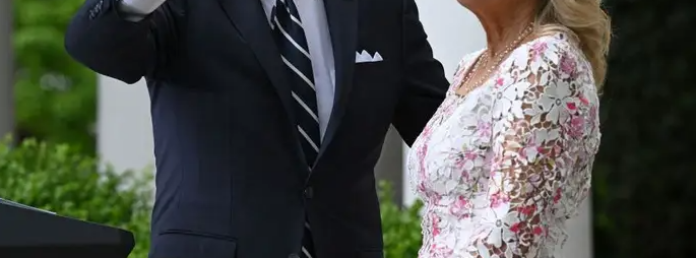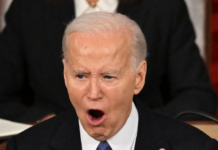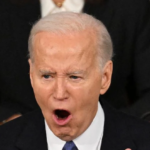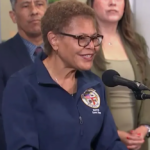
Jill Biden may be trying to stage a political comeback tour for her husband, but the reality is clear: the Democratic Party base has already moved on. The Biden political machine—once seen as a stabilizing force after the chaos of 2020—is now viewed by many inside the party as dead weight. And the latest reports of the Bidens offering to help “rebuild” the party have been met not with applause, but with eye-rolls.
According to NBC News, former President Joe Biden met with newly elected DNC Chairman Ken Martin and offered to fundraise, campaign, and generally assist in shoring up a party that has hemorrhaged credibility and cohesion since its 2024 defeat. But the reception from within the Democratic ecosystem has been tepid at best—and behind closed doors, downright hostile.
The reason is simple: Joe Biden is seen as part of the problem, not the solution.
At 82, Biden symbolizes everything the progressive base wants to leave behind. He’s tied to a failed reelection campaign, out of step with the party’s younger, louder voices, and still viewed by many as having stubbornly refused to acknowledge political reality—even when every major poll pointed to a loss against Donald Trump. Not one credible pollster—left, center, or right—showed Biden in the lead during the final months of the race. He didn’t just lose the election; he lost the room.
Now, the man who misread the political temperature so badly that he clung to a doomed candidacy is being positioned as a key player in the Democratic revival. As one major Biden donor told NBC anonymously, “Who’s going to want Joe Biden back in the game?” That question lingers like smoke in a burned-out building.
The Democratic Party’s crisis isn’t just about one election loss. It’s about a broader collapse of trust in its leadership class—the Clintons, the Bidens, and others whose names evoke more fatigue than inspiration. There’s no vision. No unity. Just aging figureheads making noise while the base demands generational change.
And into that vacuum steps the Biden family, seemingly unaware that the political tide has turned. It’s reminiscent of a losing football team rehiring the coach who ran it into the ground. The stadium’s empty, the fans are gone, and the locker room wants new management.
The Democrats don’t just lack a coherent message—they lack a messenger. And the policy positions they continue to champion are deeply out of touch with most voters: open-ended government spending, soft-on-crime urban governance, ideological litmus tests on speech and culture. The results? Dwindling support among independents, erosion among working-class voters, and a base that’s either apathetic or angry.
What remains is theater—big-city fundraisers, Broadway appearances, carefully staged “date nights,” and whispered promises of political reinvention. But the reality is bleak. The Democrats are leaderless, fractured, and staring down an electorate that no longer believes what they’re selling.








